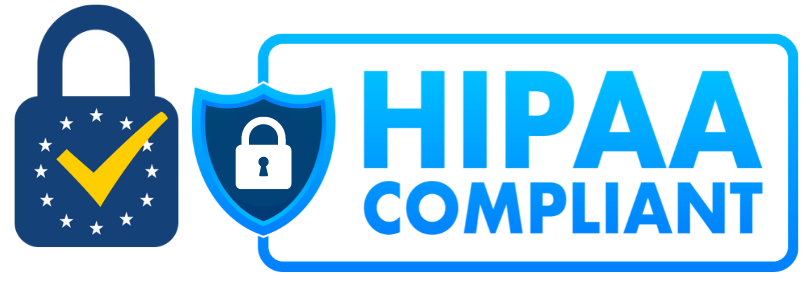La signification du terme "dûment signé" expliquée : Éviter les erreurs coûteuses dans les documents
When you sign important papers, even a small mistake can cause big problems. These papers can be job offer letters, contracts, or forms. One phrase that can be confusing is “duly signed.” But don’t worry, we’ll explain it in simple words. So, what does duly signed meaning really mean? It simply means that the paper has been signed the right way by the right person.
This makes the paper safe, clear, and real. If it is not duly signed, the paper may not work or may be questioned later. In this guide, we will explain the meaning of duly signed in easy steps. We will also look at examples, like the duly signed offer letter meaning.
Plus, we’ll show you how to avoid erreurs when signing. This way, your agreements stay safe, strong, and free from trouble.
Definition of “Duly Signed”
The term is signed with due, and it may seem like a complicated phrase. However, the meaning is rather simple, a well-signed, formally, and legally signed document. This in practice, implies that the correct individual signed in the right place, in accordance with the necessary procedure. Even a prepared agreement is not always legal without a duly signed document.
As an illustration, later disputes over an offer letter may happen when the offer letter is not signed. By knowing the definition of duly signed, you will prevent unnecessary spending of money on such negligence, and your documents will have the full weight in a professional and legal sense.
Historical Background of Document Signing
Signing documents is far from a modern invention. Ancient civilizations used seals pressed into clay or wax to signify consent, authority, or authenticity. Over centuries, handwritten signatures replaced these marks, becoming the standard way to “duly sign” agreements.
Fast forward to today, and digital signatures have taken their place alongside ink, offering a faster yet secure option. The duly signed meaning has evolved with technology, but its essence remains unchanged, authentication and consent.
From papyrus contracts to e-sign plates-formes, the human need for trustworthy, binding proof has endured across cultures and centuries.
Different Contexts of “Duly Signed”
The meaning of duly signed depends on the setting. In law, it ensures a contract is valid and enforceable. In business, it confirms all parties have officially agreed to terms, like in a duly signed offer letter. In government or administration, it signals proper authorization by the relevant authority.
Even in academia, official applications or certificates must be duly signed before recognition. The phrase always implies more than just a signature, it signifies compliance with formal requirements.
Recognizing these nuances helps you avoid misinterpretation and ensures that your documents meet the standards of their intended context.

How to Use “Duly Signed” in a Sentence
Utilisation duly signed correctly makes your writing precise and professional. Grammatically, it works as an adverbial phrase, “The contract was duly signed by both parties”, or as an adjective, “The duly signed document was submitted.” Both highlight the proper completion of the signing process.
Be careful not to overcomplicate usage with redundant words like “properly duly signed.” Also, avoid confusing it with “duly executed,” which has broader implications beyond just signatures. Mastering these subtleties ensures your sentences are clear, authoritative, and aligned with legal or formal expectations.
Examples Across Situations
Here are real-world contexts where “duly signed” matters. In law: “The lease agreement was duly signed by both the tenant and landlord.” In business, “Please return the duly signed offer letter by Monday.” In banking, “Withdrawals require a duly signed check.” In government, “Passport applications must be duly signed and submitted with supporting documents.”
These examples show that the phrase is not just formality, it’s a safeguard. Whenever something must be valid, binding, and recognized, a duly signed document makes all the difference.
Without it, even the best-drafted paperwork can be challenged or rejected.
Common Mistakes and Misconceptions
A frequent mistake is thinking any signature equals “duly signed.” In reality, it must be authorized, correctly placed, and compliant with procedure. Another error is redundancy, phrases like “properly duly signed” add nothing and weaken writing. People also confuse duly signed avec duly executed.
While both indicate formality, execution often includes extra steps like notarization or witness signatures. Precision matters, a contract that’s signed but not executed may not stand in court. By avoiding these pitfalls, you not only protect yourself from disputes but also project professionalism and credibility in your written communication.
Synonyms and Alternatives
Sometimes, people use other words instead of duly signed. One word is executed. For example, “The agreement was executed yesterday.” Another word is endorsed. Like, “The check must be endorsed before deposit.” You may also hear ratified or authenticated.
These words are close in meaning but not always the same. Ratified means more than just signed, it also means approved. Authenticated means the paper was checked and proved to be real. Each word has its own use.
Even with these choices, duly signed is still the best and most common phrase. It is simple and works in many places. That’s why people use it most of the time.

Cultural and Regional Variations
The phrase duly signed is universal, but its requirements vary across countries. In some jurisdictions, a signature alone suffices, while others demand witnesses, seals, or notarization. For example, in India, a duly completed and signed affidavit often requires a notary’s stamp. Translation also complicates matters.
For instance, duly signed meaning in Tamil may not perfectly align with English legal expectations, leading to confusion. That’s why understanding local customs and laws is critical when dealing with cross-border contracts.
One overlooked requirement can render a document invalid, no matter how carefully it was drafted or signed.
Related Phrases and Idioms
Some sayings also show the idea of duly signed. One is “put pen to paper,” which means to write or sign something to make it real. Another is “sign on the dotted line,” which means to agree to the rules in a paper. A third is “cross the T’s and dot the I’s,” which means to be very careful and check all details.
These sayings show that signing papers is not only about the law. It also indicates care, promise, and responsibility. People use these words to remind us to be honest and careful when signing.
When we link these sayings with duly signed meaning, it makes the idea easier to understand. It also shows why proper signatures are essential for trust and safe agreements.
FAQ
What does “duly signed” mean?
Duly signed meaning is that a paper or form has been signed the right way by the right person. It shows the signature is official and accepted. Without being duly signed, the paper may not count.
What is a duly authorized signature?
A duly authorized signature means the person signing has the legal right or power to sign. For example, a company boss can give a valid order because their signature is authorized.
What is the meaning of consent form duly signed?
A consent form duly signed means someone has read it and signed it correctly. This shows they agree to what is written in the form, and it is now valid.
What does “duly assigned” mean?
Duly assigned means something, like a job or task, has been given to the right person in the correct way. It shows the handover is official and proper.
How to use duly signed?
You can use duly signed-in sentences like: “The contract was duly signed by both parties.” Or, “Please return the duly signed offer letter by Monday.” It means the signing was done properly.
Réflexions finales
The phrase duly signed meaning may sound serious, but it is really about making sure papers are signed the right way. A duly completed and signed document is safe, valid, and ready to use. Without it, contracts, forms, or even a duly signed offer letter can cause trouble later.
The good news? You don’t need to worry if you use tools that make signing secure and straightforward. With AiSign, you can send, sign, and manage contracts in just a few clicks, fast, safe, and from anywhere.
Protect your documents and avoid costly mistakes with the right help.
Essayez AiSign gratuitement pendant 30 jours, sans carte de crédit
Faites l'expérience de la facilité et de l'efficacité dans la gestion de vos contrats commerciaux. Notre plateforme vous permet de créer des contrats avec des outils alimentés par l'IA, envoyer et signer des documents en ligneet bien d'autres choses encore. Dites adieu à la complexité de la paperasserie et profitez de flux de travail rationalisés. Les outils d'AiSign sont conçus pour les indépendants, les petites entreprises et les grandes sociétés. Inscrivez-vous dès aujourd'hui pour un essai gratuit de 30 jours.

À propos de l'auteur
Julie Fortuna est une rédactrice de talent pour AiSign, spécialisée dans la simplification d'idées complexes. Avec un flair pour une communication claire et engageante, Julie aide les lecteurs à comprendre les dernières stratégies et tendances.





